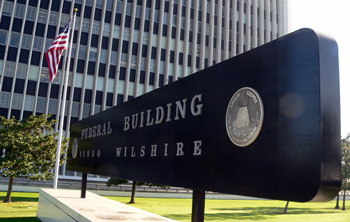
The White House is not for sale but the Obama administration is planning a sale. Actually, the government is organizing a huge clear-out - thousands of vacant or underused federal buildings. The transactions will occur gradually over the coming years.
Huge Sale
Obviously, arranging such a substantial deal requires plenty of professional help. The administration must determine which office towers and courthouses should be put on the market. If the government does not see a need for a specific property, it could make the real estate listings.
Review Panel
At least 1.2 million federal buildings will have to endure the review process. The reviewers will be an independent commission of public and private sector real estate experts. Although the announcement was not made until March 2, the panel was referred to in President Obama's 2012 fiscal budget request. The panel is modeled on the military's Base Realignment and Closure Commission.
Groups have raised concerns, however, about the review process and availability of information to interested buyers. People note prior cited federal properties in California and Missouri that were declared surplus in 2002 but not sold by 2009. Sen. Thomas R. Carper (D-Del.) who is writing a bill to trim the federal real estate portfolio is in favor of the sale.
"Clearly this is an area where the federal government gets better results for less money by reducing the amount of property we own and by better managing the property we keep," said Sen. Thomas R. Carper (D-Del.).
Common Sense
According to Jeffrey Zients, deputy director of the Office of Management and Budget, the decision to sell is a common sense approach.
"The government doesn't need all of these properties," explained Jeffrey Zients, deputy director of the Office of Management and Budget.
It could make sense for government to sell off a few buildings. The federal government's annual building operation and maintenance budget is more than $20 billion. A 2009 government audit showed that 14,000 of these properties are vacant and another 55,000 are not used to their potential.
Planned Savings
The Obama administration hopes to save $3 billion with the sale. Commercial real estate experts, however, do not expect the government to meet that goal. Industry sources expect several properties will not be in prime locations. Even well-located sites might not sell for top price. Last summer, a federal building in Bethesda, Maryland, sold for $1.5 million less than the asking price and the opening bid was only $100.
Maintaining Value
Real estate veterans suggest that maybe the government should be looking in another direction. Probably the administration could take a long term approach. Industry sources say that the government must focus on maintaining the value of their assets.
It can prove challenging to sell federal buildings. Part of the challenge is the diverse real estate needs of federal agencies. For example, military branches might need only part-time access (for months at a time) to buildings.
Do You Agree With The Proposed Sale Of Federal Buildings?
Image courtesy of laist.com